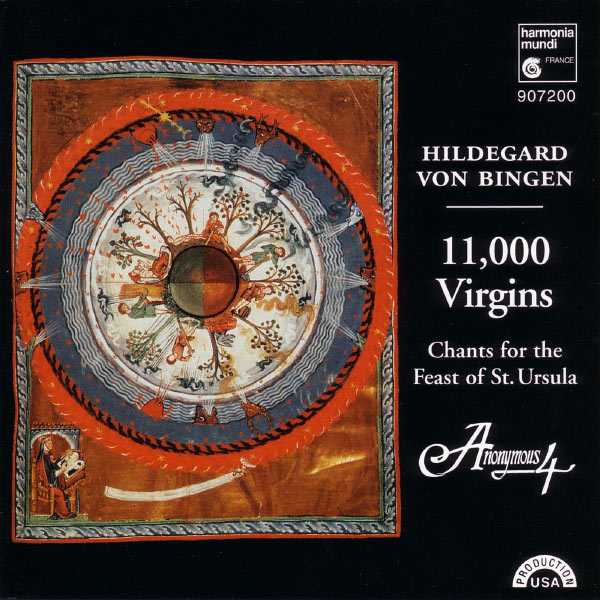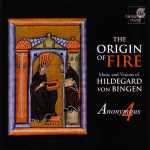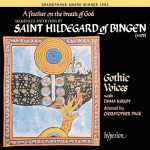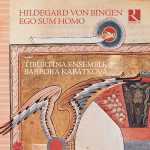
Composer: Hildegard von Bingen
Performer: Anonymous 4
Format: FLAC (tracks)
Label: Harmonia Mundi
Catalogue: HMU907200
Release: 1997
Size: 308 MB
Recovery: +3%
Scan: cover
01. Antiphon: Auctori vite psalmis / Invitatory: Venite exsultemus domino
02. Symphonia virginum: O dulcissime amator
03. Hymn: Jesu corona virginum
04. Responsory: Spiritui sancto
05. Versicle: Specie tua
06. Responsory: Favus distillans
07. Benedicamus domino
08. Antiphon: Studium divinitatis
09. Psalm 92: Dominus regnavit/Studium divinitatis
10. Sequence: O Ecclesia
11. Benedicamus domino
12. Chapter: Domine deus meus
13. Brief Responsory: Mirabilis deus
14. Hymn: Cum vox sanguinis
15. Antiphon: O rubor sanguinis
16. Canticle: Magnificat anima mea / O rubor sanguinis
17. Hymn: Te lucis ante terminum
This album is entitled 11,000 Virgins and has been heavily hyped by Harmonia Mundi. And with good reason: the Anonymous 4 have not only garnered high praise for their performances of Medieval and religious music, but at least two of their recordings, Miracles of Sant’iago and On Yoolis Night, have hit the charts, attracting the so-called “crossover” segment among potential buyers. The group’s successes are not difficult to understand: their beautiful, mostly unison singing produces a sound that combines a sweet mellowness with a kind of mesmeric serenity.
The disc’s title refers to the fifth-century legend of St. Ursula and the 11,000 virgins who, returning from a religious pilgrimage, were said to be slaughtered in Cologne by Attila the Hun when they refused to submit to concubinage. Actually, there may well have been only a handful of virgins accompanying Ursula, exaggeration that often accompanies legend accounting for the possibly inflated number. In any event, the martyrdom of these innocent women moved composers, writers, and clergy to extol them for many centuries to come.
Hildegard (1098-1179) wrote several chants inspired by this legend. Seven of the eighteen selections here are hers; the remainder are from anonymous sources, identified in the album booklet listings usually by location, edition and a time. The first track, for example, contains an Antiphon (Auctori vite psalmis) and Invitatory (Venite exsultemus domino) that are attributed to “Karlsruhe LX (13th c.).” The music on the disc spans the twelfth, thirteenth, and fourteenth centuries, though there’s little stylistic dissimilarity throughout the eighteen pieces. Those by the mystic nun and cononized saint Hildegard of Bingen will, of course, draw the most attention. It is one of the ironies of our age that nine centuries after her birth she has become a cult figure (surely not by her design), with a worldwide popularity surpassing that of many talented artists who have taken great pains to advance their careers and fame.
To cite just a few examples of the impressive artistry here, try Hildegard’s Symphonia virginum: O dulcissime amator, where this quartet finds a perfect balance between religious ecstasy and seductive vocalism, between reverential solemnity and sonorous beauty. This is truly a compelling performance of an inspired chant, perhaps the best music on the disc. Jesu corona virginum, attributed to the Ahrweil Antiphoner (13th c.), sounds like the precursor to Pange Lingua (Sing, my tongue), traditionally sung on Holy Thursday in the Roman Catholic Church. Whatever the case, the Anonymous 4 deliver it serenely and sweetly. Try also Hildegard’s Cum vox sanguinis, where the group conveys a sense of hope and spirituality with soothing yet incisive vocalism.
Not only is everything here beyond reproach, but nothing is less than utterly compelling. Excellent sound too, and full texts. Highly recommended.



